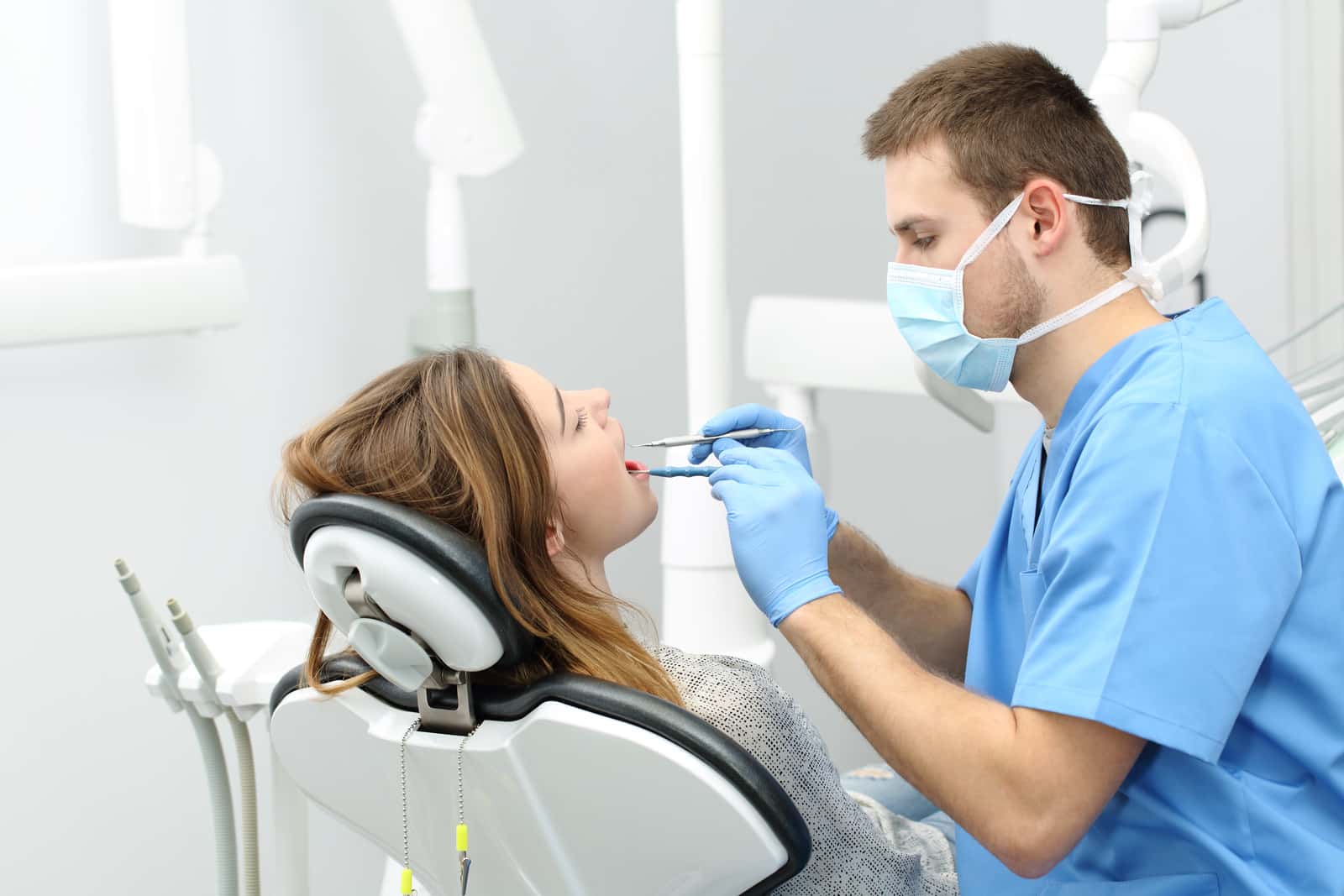An Overview to Typical Oral Problems That Call for a Dental expert's Treatment
Recognizing the variety of oral conditions that require specialist treatment is paramount for preserving ideal oral wellness. Toothaches, as an example, can be symptomatic of serious problems such as cavities, broken teeth, or abscesses, each requiring particular interventions like dental fillings or root canals. Gum disease, from the very early phases of gingivitis to much more severe periodontitis, emphasizes the relevance of routine dental exams and cleansings. In addition, influenced wisdom teeth and jaw conditions can introduce substantial pain and problems. Making sure timely brows through to the dental professional can mitigate these concerns efficiently, yet exactly what are the therapies and signs entailed?
Toothaches
Toothaches are a typical dental problem that can range from moderate pain to severe pain, often suggesting a hidden issue that needs expert focus. This discomfort can come from a selection of resources, consisting of dental cavities, broken or fractured teeth, and dental abscesses. Each of these conditions positions significant risks if left neglected, potentially resulting in much more severe difficulties.
Oral dental caries, additionally recognized as decays, are triggered by the accumulation of plaque that wears down tooth enamel, leading to holes or pits in the affected teeth. Abscesses are painful infections at the root of a tooth or in between the gum tissue and a tooth, usually resulting from serious decay or untreated dental caries.
Reliable treatment of toothaches involves resolving the origin cause. This might consist of fillings for cavities, crowns for fractured teeth, or root canals and antibiotics for abscesses. Very early intervention by an oral expert can avoid further degeneration and minimize pain, making certain optimum dental wellness.
Periodontal Illness

The primary root cause of gum tissue illness is bacterial plaque, a sticky, anemic movie that continuously develops on teeth. Poor dental health, smoking cigarettes, hereditary predisposition, and particular medical conditions, such as diabetes mellitus, can aggravate the danger of establishing gum condition. Routine dental exams are critical for very early detection and monitoring of this condition.
Therapy for periodontal illness ranges from specialist dental cleansing and scaling to advanced treatments like root planing and gum surgical treatment, depending on the extent. Keeping great oral hygiene techniques, including cleaning twice daily, flossing, and making use of an antibacterial mouthwash, can substantially decrease the threat of gum condition and promote much healthier gum tissues.
Tooth Cavities
Dental caries, likewise called cavities, are a common oral problem characterized by the devastation of tooth enamel because of acid-producing bacteria in the mouth. These germs grow on sugars and starches from food and beverages, generating acids that gradually wear down the enamel, resulting in dental caries formation.
Early-stage tooth cavities might not show signs and symptoms, however as they proceed, they can cause tooth pain, sensitivity to warm or chilly, visible openings or pits in the teeth, and staining. If left unattended, cavities can permeate much deeper layers of the tooth, potentially causing severe pain, infection, and even tooth loss.
Protecting against tooth cavities includes a mix of excellent dental hygiene methods and dietary habits. Regular brushing with fluoride tooth paste, flossing, and routine oral check-ups are crucial. Dental professionals might also suggest extra safety nets, such as fluoride therapies and oral sealers, to shield teeth from degeneration.
Small cavities can be resolved with dental fillings, which restore the tooth's structure. Much more advanced instances may need crowns or even origin canal therapy if the degeneration has actually reached the tooth's pulp.
Impacted Wisdom Pearly Whites
Affected wisdom teeth are a widespread dental issue that happens when the third molars, generally referred to as knowledge teeth, stop working to fully arise or align properly within the mouth. This condition typically arises from not enough area in the jaw or an abnormal development angle of the teeth. Impacted knowledge teeth can result in a range of difficulties, including damages, pain, and infection to adjacent teeth.
When knowledge teeth become affected, they are often partially appeared or stay totally underneath the gum line. This partial eruption can produce a path for germs to enter the gums, causing infections that show up as swelling, pain, and even fever (dentist eugene or). Additionally, look what i found impacted knowledge teeth can apply pressure on surrounding teeth, potentially creating crowding or changing
A thorough oral assessment, generally including X-rays, is vital for diagnosing influenced knowledge teeth. Therapy often involves surgical extraction, performed by a dental specialist. The treatment intends to relieve discomfort and protect against further problems, such as cysts or damage to surrounding bone structures. Post-operative treatment is vital to ensure proper healing and decrease the threat of infection. Normal dental check-ups are advisable to monitor the condition and keep dental health.
Jaw Conditions
Verdict
:max_bytes(150000):strip_icc():focal(749x0:751x2)/Dentist-122823-2-279b2c59bcd240a28a5a118cdd4176ba.jpg)
Dental cavities, additionally known as cavities, are created by the accumulation of plaque that deteriorates tooth enamel, leading to holes or pits in the impacted teeth. Abscesses are unpleasant infections at the origin of a tooth or in between the periodontal and a tooth, generally resulting from serious degeneration or untreated tooth cavities.
Impacted wisdom teeth are a common oral read the full info here problem that happens when the 3rd molars, typically referred to as knowledge teeth, fail to completely arise or straighten correctly within the mouth. Influenced wisdom teeth can lead to a range of problems, consisting of infection, damage, and pain to nearby teeth.
Additionally, impacted wisdom teeth can put in pressure on surrounding teeth, possibly creating crowding or shifting.